Vienna Calling!
Vienna Calling! – Beatselector Interview With Rainer C. Regatschnig
Thirty-plus years ago, Austria was taking the world’s pop and dance charts by storm with a flurry of powerhouse hits. Falco’s “Der Komissar” and “Rock Me Amadeus“, Opus’ “Live Is Life” and Edelweiss’ “Bring Me Edelweiss” became iconic anthems of the ’80s—impressive for a relatively small country whose biggest previous musical contributions had been largely limited to the realm of classical music. Today, Austria has a vital electronic music scene and emerging from it are three artists who have combined forces to form a new dance music entity known as Club27. It began with producer and Austria native Rainer C. Regatschnig’s 2017 idea to revamp another ’80s gem (Taco’s 1982 version of the Irving Berlin which reached number four on the US pop charts). This led to the formation of his partnership with Berlin-based Wolfgang Lohr, one of the Electro Swing genre’s best-known producers, and Justin Fidèle, a DJ and remixer from Germany, highly prolific on the international circuit.
After finding great success in the Electro Swing market, the trio hopes to expand their world presence through Club27 by reinventing Classic Rock tracks in progressive, floor-filling styles. The project begins with the house-bent premiere single, “Sympathy For The Devil“, which features New Order-esque cover art. We spoke with Rainer from his home in Vienna and discussed his team’s ambitious plans to recapture the dance floor excitement his Austrian predecessors mastered so well.
Written & Interviewed by: James Arena / Beatselector Magazine Date: 2019-10-01
Thanks for taking time to speak with us, Rainer. Tell me a little about your past and how music became a part of your life.
Rainer C. Regatschnig: It’s my pleasure. Music has been a major influence in my life, as far back as I can remember. As a child, I used to tape music off the radio and make my own “radio” shows for my mom. Then in the mid-’80s, I started working in a studio and got my hands on mixers and such when I was 18. At 19, I produced an Austrian garage band called Timeshift. A guitar band—it was kind of a success as a local band in Vienna. I began working on dance music and concept productions, creating my own label, and then moved into advertising and record label promotion. I always had a lot of concepts in my head, which later on led to my Puttin’ On The Ritz and Club27 projects.
Austria really made a name for itself in the dance-pop world of the mid-1980s. I’m thinking of artists such as Falco (“Rock Me Amadeus”), Opus (“Live Is Life”) and Edelweiss (“Bring Me Edelweiss”), all of whom had major US pop hits. Did this success make an impression on you?
RR: Yes, definitely. I knew Falco personally because he was being signed to EMI Records when I was a promotion manager there. I was reminded of him earlier today as I was putting on hair gel after a shower this morning. The first time I met Falco, he was going to the elevator, and I was coming into the office. He had just signed to the label. I said hello to him and he asked me what I was using in my hair because we had similar hair styles. We were like two girls! [Rainer laughs.] He was a great guy, and I loved him a lot. About a year later he released the hit “Titanic.” It was very exciting meeting him because I had grown up with “Der Komissar” and his other hits. He was Austrian, he was having big hits singing in English and German, he could rap (I was a big fan of Grandmaster Flash)—so he was really a hero.
What’s your take on the radical technical transformation to the music industry we’ve seen evolve over the past few decades?
RR: In the ’80s in Austria, recording reached a high level of quality because of computer music. Compared to today, you have to remember that back then we also had to do a lot more work to release something. Now, because of streaming and all the platforms, let’s say almost anyone can release music. In the ’80s, you knew the guys behind the projects, the artists—today it is less so, just names, especially in dance music. Also, music can be released today so fast. Bang-bang-bang! That’s what I don’t like most. And you sense that—a lot of dance music today has no feeling.
In 2017, you teamed up with Wolfgang Lohr and Justin Fidèle and launched your first music project, a very successful Electro Swing-styled remake of the 1982 international Dance-Pop smash “Putting On The Ritz”, performed by Taco (Ockerse). It was followed by the album Puttin’ On The Ritz – A Tribute to Fred Astaire. Would you tell me about the genesis of this project?
RR: There’s a funny story behind the project. My wife Bibi is a professional dancer. She had this franchise business called the “Arthur Murray Dance Studio.” I felt that nobody knew who Arthur Murray was anymore. So I had picked up the Fred Astaire dance music franchise for Europe. For the grand opening I was looking for something that would kind of bring Fred Astaire to life. I thought most people knew the song Fred sang called “Putting On The Ritz” and would connect it with Taco, the singer who had a big worldwide hit with it in 1982. Why not try a new version of it in an Electro Swing style? Taco loved the idea and said, “Let’s do it.” I was playing around with the idea in my studio and thought, well, this would be my first production in the Electro Swing genre, and I should have some support from people who know the genre. I connected with Wolfgang Lohr and Justin Fidèle (of Electro-Swing Revolution) in Berlin. We worked well together and that led to the single and album.
We planned to do an album, but although I loved working with Taco and we were very much in sync, it didn’t work out to do a full length LP with him. Instead, the album expanded into working with a variety of artists, including Bart & Baker, Right Said Fred, Ashley Slater (Freak Power), Alvin Chea (Take 6), Stella Jones, Louie Austen, Alex Larke, and many others. [Wolfgang, Justin and I] began to jokingly think of ourselves as a new version of [Britain’s famed ’80s dance pop producers] Stock Aitken Waterman. [He laughs.] It worked out so great. It’s unusual because three cooks can sometimes spoil the meal. But we’ve been getting along and working together now for more than three and a half years. Wolfgang is very proficient in programming; Justin is perfect with technique—the vocal recordings, signals, etc. All of us play major roles in the creation of the music. We had the chance to create something cool in the studio, with melodies and styles different from the originals.
Your latest project is called Club27—and your focus is more directly focused on club and House music—but with a rock twist. Your current single is a high-energy reinterpretation of the Stones’ classic, “Sympathy For the Devil.” What inspired this very different direction?
RR: We had heard a lot of Fred Astaire songs and worked very hard on that album. We also did a lot of club remixes for it, and, in doing so, we realized this was the style we wanted to work in next. This was the base for our Club27 project. Now that we’ve done a lot of projects together, I suggested we create a sort of boy group—it was a joke. But Wolfgang and Justin really liked the idea. We thought it would be cool to bring the music of great rock artists, like The Stones and Nirvana, to a new generation through an imaginary group called Club27. The concept is to release club versions of these legendary rock songs. It’s a simple idea—like Kiss said, “Keep it simple, stupid.” We thought we would start with the Rolling Stones’ “Sympathy For The Devil”—Brian Jones (one of the first artists we thought of for Club27) contributed so much to that song—that “oooh, oooh” chorus line and elements that maybe make it a little different from other Stones tracks. We thought it was credible classic to do a club mix.
You opted for a very powerful female vocalist. Why?
RR: I thought it might be very dangerous if we featured a male singer, in that fans might compare it to Mick Jagger and think nobody else can sing this song. Very quickly we decided a female singer would be best to put a new feeling and energy into it. I was very happy we found Erika Schiff. I asked if she’d like to do it, and when she sent back the vocal track, we were so excited. Her voice absolutely had rock power, but also a great club vibe. She has a voice you can remember when you hear it on the radio. (I’m of the generation that still loves radio.)
Can you tell me how you managed to get the track in front of DJs and build momentum for it?
RR: Wolfgang and Justin built out a network among DJs over the past 10 years that’s been very helpful. Also—those playlists on Spotify and streaming services. At first I didn’t like that idea. But after a while I realized that songs get stuck in digital download platforms, and if it’s not discovered in one to three months, it’s virtually dead. But with streaming, music is found more easily, with fewer time constraints. It’s also added to one playlist—and then another, and another. Then momentum builds.
Don’t get me wrong. I’m still a collector [of physical product]. I remember listening to albums with friends and discovering new music that way—sitting together and actually listening to music together. It was like a holy act—getting a new album, carefully slipping it out of the jacket, reading everything printed on it, and listening intensely to each track. I miss that!
What do you have planned for Club27 next?
RR: Our next idea will be a reinterpretation of the Nirvana classic, “Smells Like Teen Spirit.” We’re expecting to release it in the fall. We want Club27 to be open to male and female [vocalists and song originators]. We three are the foundation, and this track will have a male singer from the Netherlands. Let’s see how this works. We have a third single in mind, but it’s not settled yet. The idea is to release a series of club singles, and when we have enough, maybe think about an album. In streaming, you don’t really have to do an album anymore, but we are planning to eventually release a set of the singles on vinyl. We love to work together, and we’ve already got next year all locked up. Now we just have to see what the audience thinks. We want it to be quality—to be something special.
How do you measure your success?
RR: That’s a good question. In this case, we are like little children. We are excited to create this music, just like little kids get excited. I can’t imagine that it’s honest if someone says they don’t care about success.
But it’s not about the money—there is no real money in the music business. [He laughs.] What would have to happen is our song gets used in a commercial or something. Then you make money. But success for us comes from entertaining people—a lot of plays on Spotify, etc. “Puttin’ On The Ritz” reached number one on the iTunes chart in November of 2017. The producers of the US. TV show Dancing With The Stars asked to use our version of “Ritz” on their [25th] season finale, and the couple dancing to it (Jordan Fisher and Lindsay Arnold) won. We weren’t the composers of course and didn’t see any more money, but it was a big step forward. That brought us a lot of attention. When that happens, we know people like our work. We’re not on a stage, like a traditional artist, to hear applause. It’s a lot of work to produce this music, so this kind of feedback really encourages us to go on.
I didn’t do anything in the music business for a long time—I ran a multi-media company and plan and sell [pre-fab homes]. I’m very happy I did this work because it allows me the freedom to now do the music. A major label might reject our work, but we don’t have that pressure—we put out our music ourselves (our label is called R&B Music—named after my wife Bibi and I), so it doesn’t matter. We have that kind of freedom.
Would you share your perspective on creating music that expands past the borders of Austria and is heard worldwide?
RR: Thirty years ago, with my first label and music productions, America was a mountain you had to climb. When Falco became such a success and went to number one the US, we all felt here in this country as if Austria itself had gone to number one—because America was so far away. When I look at Spotify analytics, our music is being played everywhere, and 70 percent is from the US. If this was 30 years ago, we’d be feeling just as we did for Falco! But now we know it’s because of the digital world— there are really no borders. If the production is released at the right time, and it’s good, you have a chance to reach anyone in virtually any part of the world.

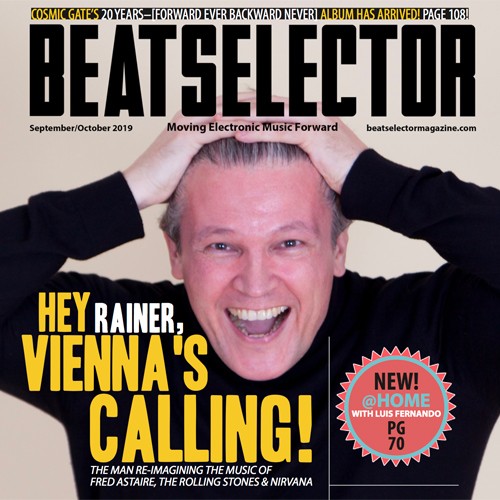
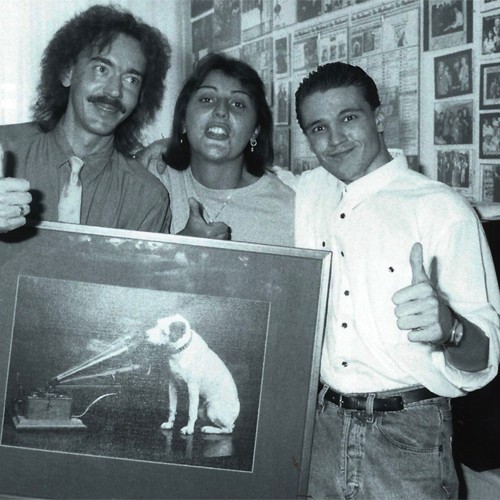
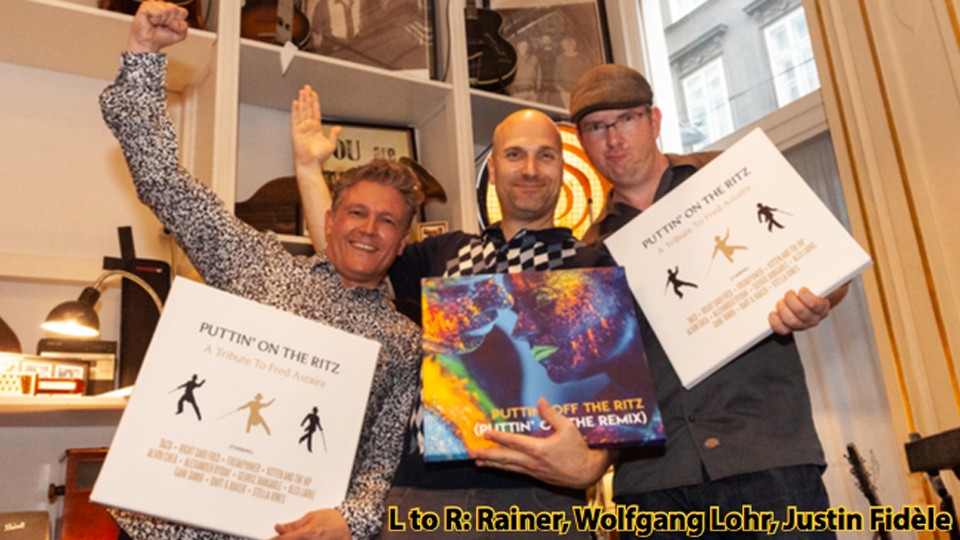
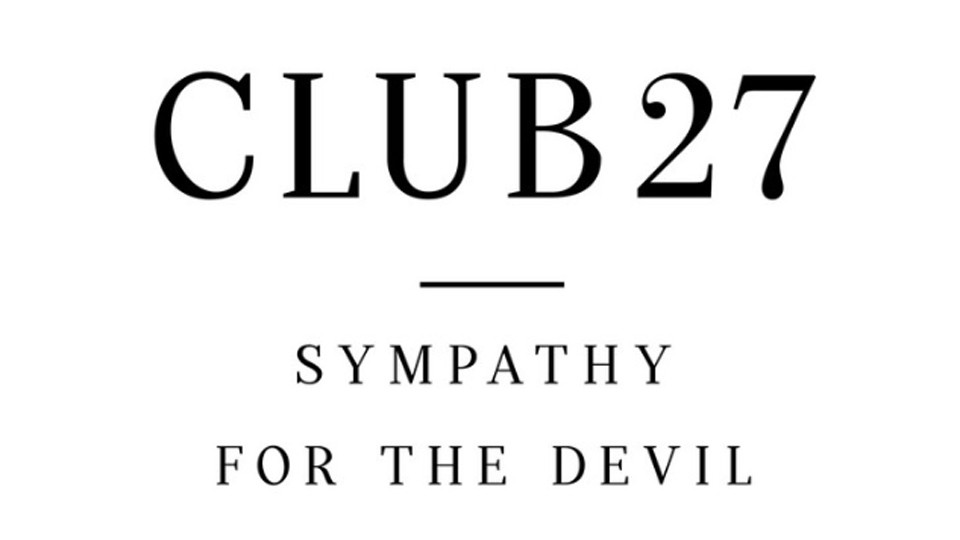
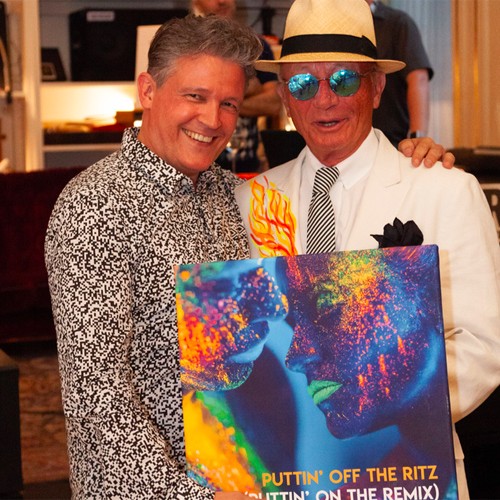
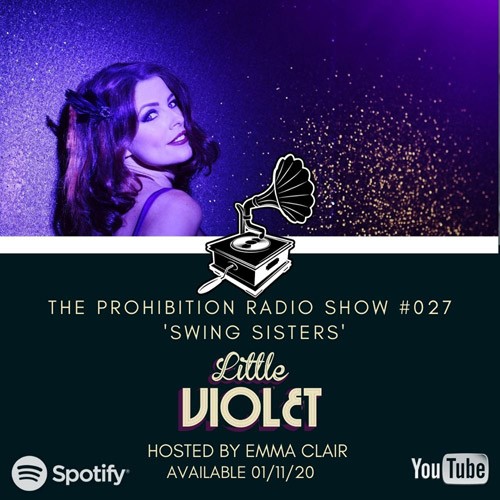
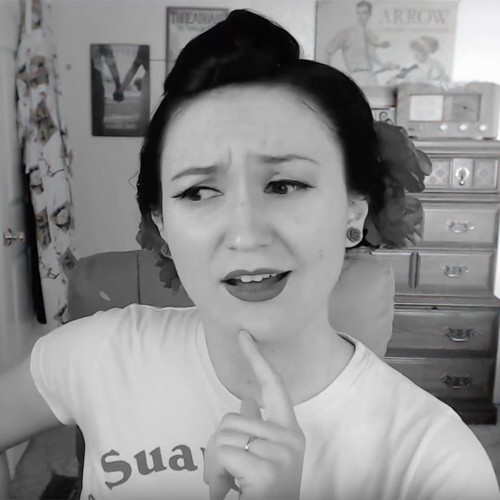
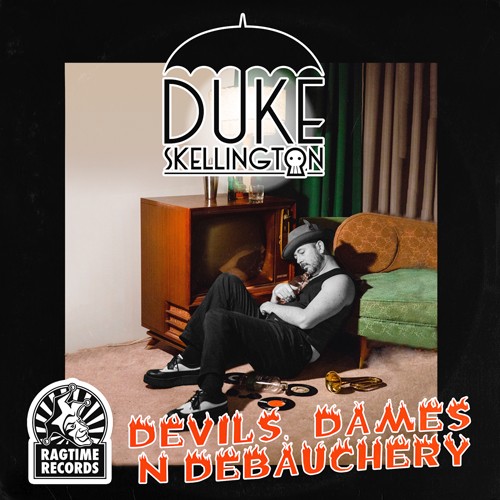 Ragtime Records
Ragtime Records  Electro Swing Thing
Electro Swing Thing  Electro Swing Thing
Electro Swing Thing  Electro Swing Thing
Electro Swing Thing 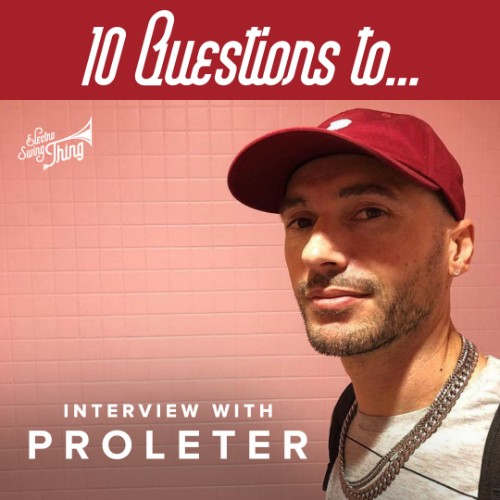 Electro Swing Thing
Electro Swing Thing  Electro Swing Thing
Electro Swing Thing  AURÈLE GUYOT
AURÈLE GUYOT 